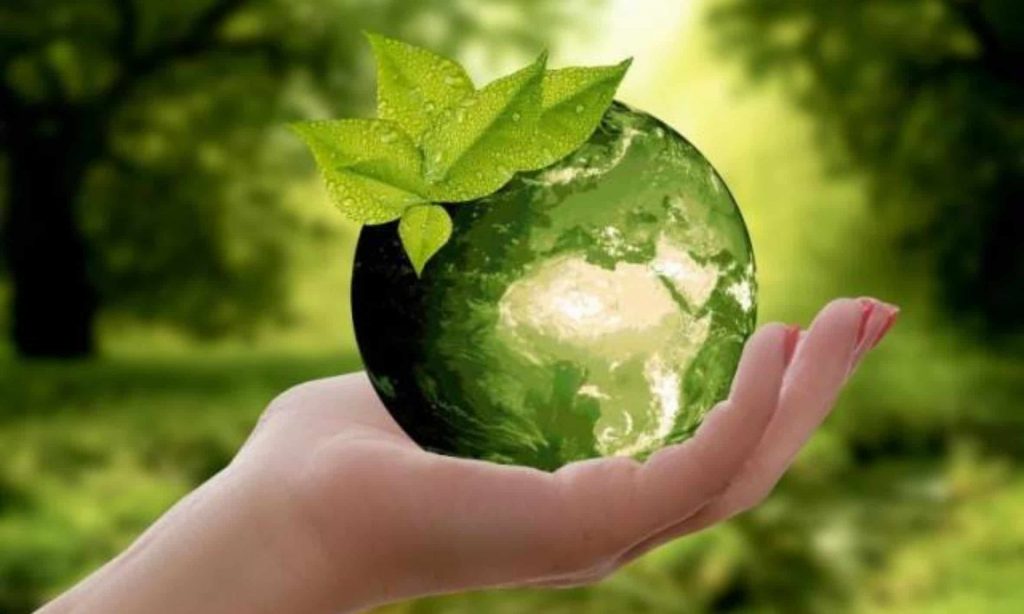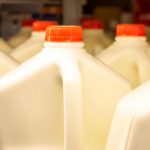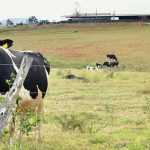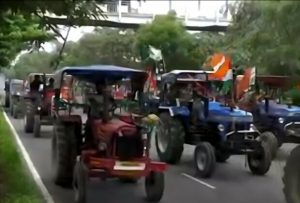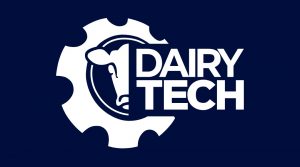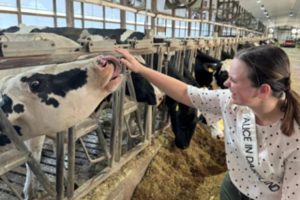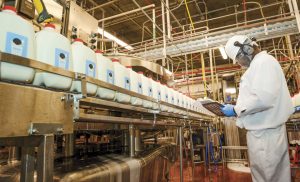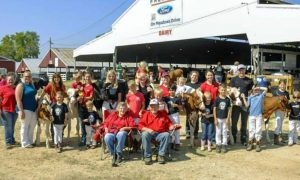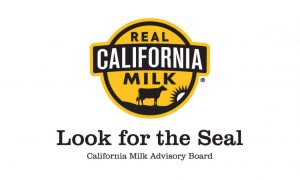
For lower costs and more sustainable practices, dairy farmer Nathan Souther of Mountain View Dairy in North Carolina now stores and grinds crops like corn on-site. The corn is then given to the cows as part of their feed.
Nathan’s farm also uses standard farming practices like water recycling, manure collection, and soil management.
Yes, manure collection is an important practice on the dairy farm. The Souther family collects manure to prevent runoff. The manure is stored until use in the fields. Manure improves soil health and fertilizes the crops eventually used as cow feed. The practice limits pollution and takes advantage of a common resource on the farm.

Like people, cows have nutritional needs that are met through a variety of foods, so they eat more than a patch of grass. To provide cows with their specific nutritional requirements, dairy farmers feed cows a mix of feed. A large part of cows’ diet consists largely of corn and its leaves and/or chopped alfalfa and its hay. Cows also enjoy grain and other byproducts of food production.
Dairy farmers often take possible feed additives from other local industries’ wastes. Cows can digest more types of food than humans can eat due to their four-chambered stomachs. With their four-chambered stomachs, cows can break down products humans cannot and use the energy and nutrients in these products that would otherwise go to waste.
This opens the possibility of cows eating citrus pulps, cottonseed and almond hulls, Brewers’ grain, and other byproducts that would otherwise go to waste. Instead of just focusing on making their practice greener, farmers look for ways to increase sustainability throughout their communities.
These on-farm practices are important for production today, but they are also steps toward keeping dairy farming a viable option for future generations.
“I would like to see this business carry on to my children if they choose to do this,” said Nathan. “The way that [the industry] is moving, I think they’ll have more opportunities than I’ve had. We keep learning how to better feed cattle and get more production, and I want to give them every opportunity to do better than I’ve done.”
To learn more about how dairy farmers like Nathan are making dairy more sustainable, check out our Sustainability and the Dairy Industry section. Make sure to follow along on social media as we highlight the work of dairy farmers across the Southeast.
